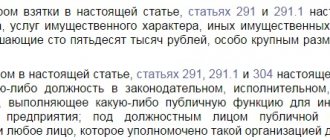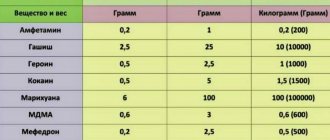Pravnik.Bai 12/07/2016
Fraud is the intentional unlawful gratuitous taking of another’s property or the right to property for personal gain through deception or abuse of trust. A distinctive feature of fraud is that the fraudster takes possession of the victim’s property using the misconception of the person who transfers it or does not prevent the seizure.
Contact fraud lawyers in Minsk
This article is aimed at providing the reader with a brief practical commentary on Article 209 of the Criminal Code of the Republic of Belarus (hereinafter referred to as the Criminal Code of the Republic of Belarus).
Legal characteristics of the objective side of fraud
The object of fraud is the order established in society and protected by the state, which secures the inviolability of property. The subject of fraud is property or the right to property, namely:
- things (movable and immovable);
- money and documents that act as a monetary equivalent (securities, postal payment marks, transport coupons, etc.), which directly give the right to receive material assets or services;
- registered securities;
- property rights (debt obligations, etc.);
- exclusive rights to the results of intellectual activity and means of individualization of participants in civil transactions, goods, works or services.
Deception as a method of misrepresentation consists of deliberately communicating untrue information or keeping silent about its existence, or in actions (for example, providing counterfeit goods or other subject of a transaction), etc., but cannot cover personal assessments (“the most the best car, so it’s very expensive”).
Breach of trust in fraud consists of using the victim’s misconception regarding the intentions of the perpetrator’s further behavior when transferring to him property or the right to property and is not associated with any distortion of factual circumstances (deception). Legal literature notes that trust can be based on personal relationships between the perpetrator and the victim prior to the theft, due to official position, related (family) relationships, etc.
Fraud is considered completed from the moment when, as a result of deception or abuse of trust, someone else’s property came into the illegal possession of the perpetrator or other persons, and they received a real opportunity to use it or dispose of it at their own discretion.
Criminal association
Fraud (Article 209 of the Criminal Code of the Republic of Belarus) is qualified under Part 2 if the theft was committed by a group of persons and the damage amounted to 250 basic units or less (no minimum amount is established). A group crime is recognized as such if at least 2 people jointly committed a crime (participated in deception), that is, they became its perpetrators, as a result of which they took possession of property without the right. In this case, it should be understood that execution is different from aiding and abetting. If an organized group of persons was operating, then such fraudulent actions are already qualified under part four.
The second part of Article 209 belongs to the category of a less serious crime, for which the statute of limitations is similar to the first part and is five years from the date of commission of the criminal act.
After the trial, depending on the severity of the crime, the following sentence for fraud may be imposed:
- arrest (1-3 months);
- fine (30-1000 b.v.);
- restriction of freedom (6 months–4 years);
- correctional labor (6 months–2 years, mandatory deduction from wages from 10 to 25% to state income, but not less than 1 b.v. every month);
- imprisonment (6 months - 4 years).
Criminal liability for fraud and petty theft
Petty theft of property by fraud, as well as attempted fraud, is punishable under Article 10.5 of the Code of Administrative Offenses (hereinafter referred to as the Code of Administrative Offenses of the Republic of Belarus). The concept of petty theft is given in the note to Article 10.5 of the Code of Administrative Offenses of the Republic of Belarus, where petty theft means the theft of property of a legal entity in an amount not exceeding 10 basic units, and in relation to an individual - no more than 2 basic units on the day the act was committed, with the exception of the theft of an order, medals, badges for the honorary title of the Republic of Belarus or the USSR, or theft committed by a group of persons. (see part 4 of the note to Chapter 24 of the Criminal Code of the Republic of Belarus). In accordance with paragraph 1 of the Resolution of the Council of Ministers of the Republic of Belarus dated November 28, 2016 N 974, the base amount is 23 rubles from January 1, 2022.
According to Part 4, Clause 25 of the Resolution of the Plenum of the Supreme Court of the Republic of Belarus dated December 21, 2001 N 15 “On the application by courts of criminal legislation in cases of theft of property,” when determining the value of stolen property, one should proceed, depending on the circumstances of its acquisition by the owner, from state retail stores , market, commission or other prices on the day the crime was committed. In the absence of a price, and if necessary, in other cases, the value of the property is determined on the basis of an expert’s opinion (read more in our article “Amount of theft: calculation features and criminal legal significance”).
Criminal liability for fraud is established in Article 209 of the Criminal Code of the Republic of Belarus (hereinafter referred to as the Criminal Code of the Republic of Belarus). A person who has reached the age of sixteen at the time of committing fraud is subject to criminal liability, with the exception of cases provided for by the Criminal Code of the Republic of Belarus.
Article 209 of the Criminal Code of the Republic of Belarus consists of four parts and differentiates criminal liability depending on the presence of qualifying signs of fraud in the actions of the perpetrator. If one crime contains several qualified characteristics provided for by different parts, liability arises for the more serious of them. Within one part of Article 209 of the Criminal Code of the Republic of Belarus, the type and amount of punishment mainly depend on the amount of damage due to fraud, as well as the presence of mitigating and aggravating circumstances in the actions.
Part 1 of Article 209 of the Criminal Code of the Republic of Belarus
Part 1 art. 209 of the Criminal Code of the Republic of Belarus provides for criminal liability for fraud in the amount of:
- from 10 to 250 basic units (from 230 to 5750 rubles) in relation to a legal entity;
- from 2 to 250 basic units (from 46 to 5,750 rubles) in relation to an individual;
- regardless of the amount - in case of theft by fraud of an order, medal, badge for the honorary title of the Republic of Belarus or the USSR.
Criminal fraud under Part 1 of Art. 209 of the Criminal Code of the Republic of Belarus falls into the category of a less serious crime; the statute of limitations for bringing to justice from the date of commission of the crime is five years.
The sanction of Part 1 of Article 209 of the Criminal Code of the Republic of Belarus as amended by the Law of the Republic of Belarus dated January 5, 2015 No. 241-Z provides for the following alternative main types of punishment:
- community service for a period of sixty to two hundred and forty hours;
- a fine from thirty to one thousand basic units (from 690 to 23,000 rubles);
- correctional labor for a period of six months to two years with withholding from earnings to state income from 10 to 25%, but not less than one basic amount monthly;
- arrest for a period of one to three months;
- restriction of freedom for a period of 6 months to three years;
- imprisonment for a term of 6 months to three years.
Part 2 of Article 209 of the Criminal Code of the Republic of Belarus
Part 2 art. 209 of the Criminal Code of the Republic of Belarus provides for criminal liability for fraudulent actions falling under Part 1 of Art. 209 of the Criminal Code of the Republic of Belarus, which were committed repeatedly. Theft is considered committed repeatedly if it was preceded by any of the crimes provided for in Art. 205 – 212, 294, 323, 327, 333 of the Criminal Code of the Republic of Belarus and the person was not released from criminal liability or the conviction for this crime was not expunged or removed in the manner prescribed by law.
It is necessary to distinguish repeated theft from continued theft, that is, repeated unlawful gratuitous seizure of property for mercenary purposes, consisting of a number of identical criminal actions, if they were committed under circumstances indicating that the person has a common goal and a single intent to steal a certain amount of material assets. In case of continued theft, its size is determined by summing the value of the property for all episodes of theft.
According to Part 2 of Article 209 of the Criminal Code of the Republic of Belarus, fraudulent actions committed by a group of persons in the amount of up to 250 basic units (up to 5,750 rubles) are also qualified, while no minimum amount of fraud has been established. Fraud is recognized as committed by a group of persons if at least two persons jointly participated in the commission of this crime as its perpetrators, i.e. participated directly in deception (abuse of trust) and acquisition of property through fraud.
Thus, it is important to distinguish execution from aiding, abetting, and organizing. If fraudulent actions are committed by an organized group, liability arises under Part 4 of Article 209 of the Criminal Code of the Republic of Belarus.
Criminal fraud, which falls under Part 2 of Art. 209 of the Criminal Code of the Republic of Belarus falls into the category of a less serious crime; the statute of limitations for bringing to justice from the date of commission of the crime is five years.
The sanction of Part 2 of Article 209 of the Criminal Code of the Republic of Belarus as amended by the Law of the Republic of Belarus dated January 5, 2015 No. 241-Z provides for the following alternative main types of punishment:
- a fine from thirty to one thousand basic units (from 690 to 23,000 rubles);
- correctional labor for a period of six months to two years with withholding from earnings to state income from 10 to 25%, but not less than one basic amount monthly;
- arrest for a period of one to three months;
- restriction of freedom for a period of 6 months to four years;
- imprisonment for a term of 6 months to four years.
Part 3 of Article 209 of the Criminal Code of the Republic of Belarus
Part 3 art. 209 of the Criminal Code of the Republic of Belarus provides for criminal liability for fraud committed in an amount over 250 to 1000 basic units (over 5,750 rubles to 23,000 rubles).
Criminal fraud under Part 3 of Art. 209 of the Criminal Code of the Republic of Belarus belongs to the category of a serious crime, the statute of limitations for bringing to justice from the date of commission of the crime is ten years.
The sanction of Part 3 of Article 209 of the Criminal Code of the Republic of Belarus as amended by the Law of the Republic of Belarus dated July 22, 2003 No. 227-Z provides for punishment in the form of imprisonment for a term of two to seven years with confiscation of property or without confiscation.
Part 4 of Article 209 of the Criminal Code of the Republic of Belarus
Part 4 of Article 209 of the Criminal Code of the Republic of Belarus provides for criminal liability for fraud committed in an amount exceeding 1,000 basic units (over 23,000 rubles) or regardless of the amount stolen when committing a crime by an organized group.
Fraud is considered committed by an organized group if at least two persons, having previously united into a managed stable group for joint criminal activity, jointly participated in the commission of this crime as its perpetrators, i.e. participated directly in deception (abuse of trust) and acquisition of property through fraud.
Criminal fraud, qualified under Part 3 of Art. 209 of the Criminal Code of the Republic of Belarus belongs to the category of a serious crime, the statute of limitations for bringing to justice from the date of commission of the crime is ten years.
The sanction of Part 4 of Article 209 of the Criminal Code of the Republic of Belarus as amended by the Law of the Republic of Belarus dated July 22, 2003 No. 227-Z provides for punishment in the form of imprisonment for a term of three to ten years with confiscation of property.
Distinguishing fraud from related crimes: qualification problems
Due to the fact that delusion can only arise from a legally competent person, theft of property by changing information or entering false information in a computer system should be qualified under Article 212 of the Criminal Code of the Republic of Belarus, and theft of property of an incompetent person – under Article 205 of the Criminal Code of the Republic of Belarus (theft).
To distinguish fraud from other crimes, it is necessary to take into account that it is the deception of a person due to deception or abuse of trust that is the actual method of the fraudster to seize and turn over property for his or her benefit or that of third parties. In other words, until the fraudster receives a real opportunity to dispose of the stolen property, the victim or the person to whom he transferred his property does not interfere with the implementation of criminal intent due to delusion, and not because of his carelessness, sluggishness, indecision, physical weakness and etc. Thus, actions in which the perpetrator uses deception to facilitate access to property, and subsequently:
- takes it away unnoticed by the victim, it should be considered theft (Article 205 of the Criminal Code of the Republic of Belarus);
- criminal intent in the process of theft is discovered by the victim and the culprit escapes with the property, then the actions must be qualified as robbery (Article 206 of the Criminal Code of the Republic of Belarus);
- the actions of the culprit are detected, but in order to bring the criminal intent to completion, he uses violence that is dangerous to the life or health of the victim, then in this case robbery occurs (Article 207 of the Criminal Code of the Republic of Belarus).
As a special case, it is necessary to distinguish between deception of consumers (Article 257 of the Criminal Code) from fraud (Article 209 of the Criminal Code of the Republic of Belarus) in which in the field of retail trade a seller or an employee of the seller of an individual entrepreneur or organization takes possession of the property of a consumer - an individual, by means of shortchanging, skimming, and other methods.
Unlike fraud, when misappropriation or embezzlement (Article 2011 of the Criminal Code of the Republic of Belarus), the person has the intent to steal only after the property has already been entrusted to him.
In contrast to mediation in bribery (Article 432 of the Criminal Code of the Republic of Belarus), in fraud the perpetrator accepts material assets from the bribe-giver without intending to transfer them to a subsequent official and appropriates them for himself, and if at the same time he also incited to give a bribe, the actions must be qualified according to collectively as fraud and incitement to give a bribe.
Repeated act
Criminal liability for fraud under Part 2 of Article 209 of the Criminal Code occurs when theft of property is committed for the second time by misleading the victim. An offense is considered recurrent if there has been a similar offense that falls under Articles 205-212, 323, 333, 294, 327 of the Criminal Code, and at the time of prosecution for the present crime, the person’s criminal record was not expunged in the manner prescribed by law or the citizen was not exempted from criminal liability.
It is important to understand the difference between “continuing” and “repeated” misappropriation. The first term consists of a number of similar criminal acts committed under circumstances that confirm that a person has a common goal and a single intent to steal a certain amount of material assets. In such an act, the amount of the stolen goods is reduced by summing up the value of the property for all episodes.
Large material damage
Under Article 209, Part 3 of the Criminal Code of the Republic of Belarus, those accused of fraud are tried, the amount of damage from which varies from 250 to 1000 bp. V. A crime under this article is already considered serious, and the statute of limitations, compared to previous less serious criminal acts, has been increased to 10 years from the date of commission.
If the first two parts could be limited to a fine, public or correctional labor, then in this case the punishment is provided only in the form of imprisonment for a period of 2 to 7 years with the mandatory confiscation of registered property or, by a court decision, without confiscation.
Recommendations
In order to quickly begin an investigation into a case of fraud (Article 209 of the Criminal Code of the Republic of Belarus), it is necessary to indicate the maximum details in the appeal:
- place of residence or work;
- passport data (if the fraudster provided a copy of the passport pages);
- a detailed description of the person, prominent signs, if there is no other information about him;
- the circumstances of the deception in chronological order;
- the essence of the scam, which proves malicious intent;
- legal assessment of the criminal’s behavior (speculations of which you accuse him);
- hypothetical amount of damage caused.
Important! It is recommended to omit insults, promises of revenge, and obscene language in the text. It is recommended to end with a petition to open a criminal case or begin proceedings on the fact of fraud (Article 209 of the Criminal Code of the Republic of Belarus). A correctly completed application is the first step towards detecting an attacker and proving his not at all good intentions.
It is not uncommon for a person to refuse to initiate a criminal case. A common wording in this case, for example: “The person in respect of whom the inspection was carried out explained that there was indeed a fact of taking money from a citizen (victim), but he did not have the opportunity to return it on time, due to the current difficult financial situation, with In this case, he does not refuse the debt and is ready to repay it as far as possible; accordingly, in this case there is no element of fraud, the relationship must be clarified at the level of the Civil Code.” Such a response can be appealed to the prosecutor’s office, but it is necessary to concentrate on the audit materials and search for new evidence of the opponent’s fraudulent actions.
Serious crime
Part 4 of Article 209 of the Criminal Code of the Republic of Belarus is appropriate if fraud is proven, the damage from which exceeded 1000 basic units. Under the fourth part, which is classified as a serious crime, an organized group is also tried, regardless of what material losses the act entailed. The statute of limitations for this criminal case is 10 years.
Collective fraud can be recognized as such if two citizens previously agreed to join forces to carry out criminal activities, jointly, equally took part in the commission of a crime, that is, they were the perpetrators of the deception that occurred and, abusing the trust of the victim, committed theft by fraud.
Punishment for a serious crime with huge material losses according to the Law of the Republic of Belarus: imprisonment, taking into account all the circumstances - a minimum of 3 years, a maximum of 10 years with confiscation of property.
Qualification problem
The idea of committing fraud by deception or breach of trust can only arise in the mind of a competent person who can account for his actions. Therefore, theft of a large amount by changing data or entering false information in a computer system is qualified under Article 212 of the Criminal Code of the Republic of Belarus, and taking over the property of an incapacitated citizen is qualified under Art. 205 of the Criminal Code of the Republic of Belarus (theft).
Here there is a fine line between ordinary theft and fraud: it is misleading a person by deceiving him and using trust with malicious intent that is the main way for a fraudster to take possession of someone else’s property. In simple words, it can be explained as follows: the criminal gets the practical opportunity to use the stolen property at his own discretion, since the victim gave such a right due to an existing misconception, and not due to sluggishness or inattention.








